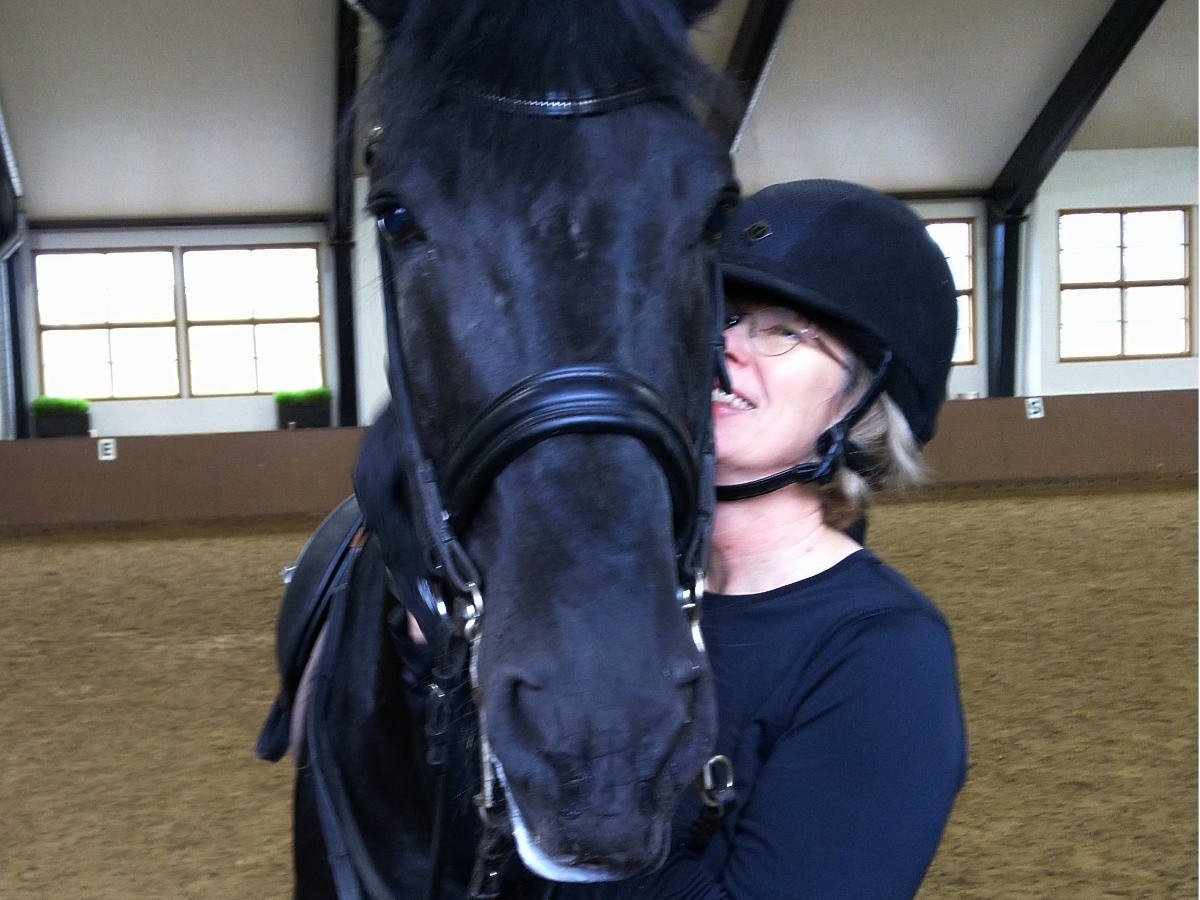Kirsi Hämäläinen, PhD
Kirsi is a principal lecturer at Haaga-Helia University of Applied Sciences in Finland.
Her short career as a coach, has been followed by a long career as a coach developer and especially coach developers’ developer 😊.
Prior to her current role, Kirsi worked at the Finnish Olympic Committee responsible for Coach Development.
Her doctoral thesis was titled: An athlete and a coach in the world of sports: ethos, ideals, and education in athletes’ narratives. From athletes’ narratives she found five different ethos, which guide thinking and behaviour in sport.
She played volleyball and beach volley for many years. Her multisport childhood has enabled Kirsi to return to dressage, one of the equestrian disciplines. She enjoys the escape from everything that dressage provides.
What Kirsi most enjoys about dressage is the feeling that there is no bar to ongoing improvement, unlike many other physical pursuits. She describes how important the cooperation and bond with the horse is. She says, “there may be challenges but the moments when is all comes together are indescribable”.
HOW DID YOU GET INTO the COACH DEVELOPER ROLE?
Coach development has been a key part of my entire career. As is often the case, serendipity played an important role. I was a student at university and during the summer holidays the phone rang. I was asked to work at a sports institute to teach one short course. Of course, I went because I had just wasted all my money on traveling in Europe!
I stayed at the sport institute (for 15 years!) and was given responsibility for various types of coach education.
MY COACH DEVELOPER PHILOSOHY
Over the years my idea has changed from planning the content and materials into planning the learning. I think we need to give the coaches a learner-centred learning experience.
Also, I used to think it was OK if the coaches felt they had only mastered bits of the course. That it was acceptable if coaches left a course feeling uncertain, knowing that any gaps would be filled through continuous learning. I now feel that it is important for coaches to achieve mastery in sufficient areas to leave the course feeling confident that they can do the job.
It is important for coaches to achieve mastery in sufficient areas to leave the course feeling confident that they can do the job.
BEST PART ABOUT the ROLE
The student coaches and co-workers and the joy of learning together.
SUPPORT for COACHES and COACH DEVELOPERS
In my current job at the university, I mainly teach master’s students.
In our system (Applied University), you only apply for the master’s degree after a few years of work experience as a coach or coach related job. So, the students are relatively experienced and in important positions in their working life. Learning together with them is really rewarding.
I used to work in the Olympic Committee and was responsible for coach development. I led the network of coach developers, and it has been one of the top things in my working life. We achieved a lot.
I have held numerous positions of trust where I have been able to influence coaching and coaching skills. The most important is certainly being a member of the International Council for Coaching Excellence board (ICCE), and my involvement with numerous ICCE projects over the years.
It has also been great to be involved in the activities of Finnish Coaches Association.
IF I HAD MORE RESOURCES
If I won the lottery, I would establish a foundation to support sports research. Its funding in Finland is too low.
And if I could make laws, I would make coach education free. Finland is a country of free education. Most coaches are volunteers, and yet we have created a system where coach training costs money and some coaches pay to be able to do their volunteer work better.
DO YOU WORK in PARTNERSHIP with OTHER COACH DEVELOPERS?
This is the pepper and the salt in my job. We have a great team at the university, and I still work with the people from my previous job at the Olympic committee. AND the international network within ICCE has been a big part of my life for 30 years.
HIGHLIGHTS and CHALLENGES
I am especially proud of these:
- Building the coach developer Network in Finland when I worked at the Finnish Olympic Committee.
- Development of ICCE activities over the years
- The work for developing coaching culture and respect for coaches – baby steps and some bigger ones.
- The students and co-workers excelling in their jobs.
DO YOU HAVE a MENTOR?
Several people have helped me during my career. Two times I have been in a professional guidance process and that has been very useful.
I also have some mutual mentoring relationships. One of them is Gene, who has given me food for thinking for several years.
MY TOP 4 COACH DEVELOPER TIPS
- Focus on “how”. Choose learning methods that develop different ‘meta skills’ in the participants. That is, the ability to apply a range of deep-thinking skills. These include reflecting on their coaching and the self-regulation of their thoughts, emotions, and behaviours. Other important ‘meta skills’ include thinking skills, knowledge seeking, analysis skills, development skills and assessment skills. These might be even more important than the content in the long run.
- How do you want the coaches to work with the athletes? Give them experience and work with them to nurture and refine that experience. If you want them to be athlete centred – be coach centred.
- Less is more. If they master something well – that is a bigger achievement than if they have a big bag full of material they never can use.
- Good questions are so critical and yet so difficult to find. It is way more demanding to find good questions than answers. Reflect on your coaching experience with the view to developing a toolkit of useful questions.

